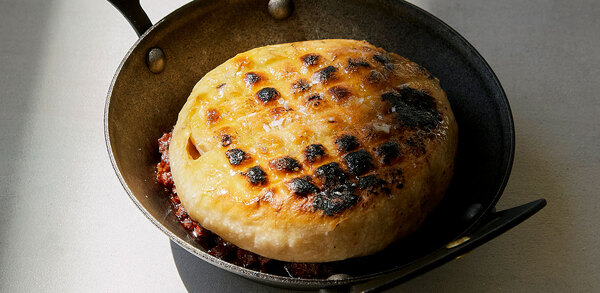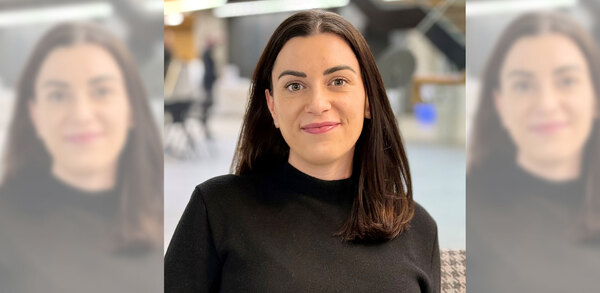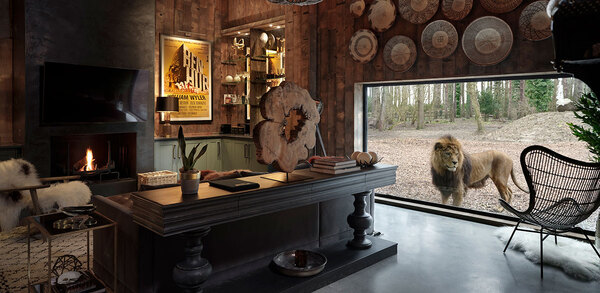The future is female: Industry leaders and rising stars
It's still a man's world, they say. Or is it? All over the hospitality industry there are women running their own businesses or taking senior roles in large companies. Here we talk to 46 industry leaders and rising stars
Lisa Allen, head chef, Northcote Manor, Lancashire
At 26, Lisa Allen is extraordinarily young to be head chef of this Michelin-starred restaurant/hotel, but it's her talent and hard work that earned her this position three years ago. A native Lancastrian, Lisa went to college in Morecambe and after a period at Le Champignon Sauvage in Cheltenham, returned home to work at Northcote Manor and has been there ever since.
Allen always wanted to be a chef. "I'm a very practical person and excelled in cooking when I was at school, but I've really enjoyed the challenge of management that comes with the top job," she says.
She heads a brigade of 14, of which only three, including herself, are women and there are no concessions. "It's harder for women to bounce back after they're knocked down", she concedes, "but we have to prove ourselves just like anyone else."
When Allen started at Northcote Manor six years ago, she was a demi-chef de partie. She rose through the ranks, so the brigade already knew her when she became head chef. "But I still had to earn their respect," she says.
Of employing women in the kitchen herself she says: "I'll take the right person, regardless of sex. If there are two equally qualified applicants, I'll take the one who I think will do the job best. I'd hate to be employed just because I was female."
She admits that "perhaps one day I might open my own restaurant" but for now she's settled. "Nigel Haworth [chef-proprietor] is a genius and I learn something new every day."
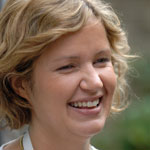
Still relatively unknown, Sara Adams has already attracted the attention of critic Fay Maschler, who rather liked what she was doing at Common Ground, in Wandsworth.
Adams is one of that rare breed of female chefs who likes - and knows - her wine. "I've worked with Angela Hartnett and Allegra McEvedy," she says. "I'd really be missing the plot if I didn't know about wine."
A Leith's cookery course initially fuelled her thirst for wine knowledge, as did trips around vineyards while working as a trainee chef in Australia and numerous visits to California's wine country.
Adams, who was originally a town planner and local government policy writer, has been cooking for only six years. "I've always been obsessed by food, and I've wanted to own a restaurant since I was three," she says.
So she started with a Saturday job at Divertimenti's café, then went part-time in her day job, increasing the cooking to two days a week. "But I had to make a decision - and cooking won," she says.
After Common Ground, Adams took up a head chef position at Armadillo in Notting Hill, where its wine-savvy boss encouraged her wine explorations further.
She's not too fussy about food and wine matching - "I think you should drink what you like with what you want" - and hopes her staff will be similarly laid back about customers' wine preferences. "Staff should know at least the basics about wine - it is your profit, after all," she adds.
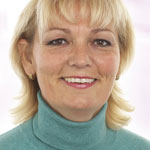
She may have started out as a pot-washer in a club restaurant, but Wendy Bartlett had already set her sights high. She went on to join Sutcliffe as a trainee manager and by the age of 21 she had been made manager.
After that, she was on a roll. As area manager she worked with Nick Howe (now of Holroyd Howe) under William Baxter. One of her most challenging jobs was as account director for the British Airways contract, probably one of the single largest catering operations in the UK. Her responsibilities included overseeing the hospitality in British Airways VIP lounges and the Concorde departure lounge.
Other experiences included troubleshooting an employment agency that Sutcliffe had bought and acting as catering consultant during the expansion of the David Lloyd sports clubs.
In 1995 she moved across to Compass at the same time as Don Davenport and Mike Oldfield and worked on prestigious City contracts. It was there that she forged plans with Ian Mitchell to set up a contract catering company, a dream that came true in 1999 with the launch of BartlettMitchell. The company's growth has been steady. Seven years on and with 54 contracts, they are now competing in the same pool as the bigger corporate players.
As a woman in hospitality, Bartlett thinks her natural strengths are the ability to be adaptable and flexible. But while she has thrived, she recognises that it can be harder as women climb the ladder in hospitality.
"Men will pigeonhole your abilities - they will think ‘she's good but she'll never make MD'. I got around it by starting my own company."
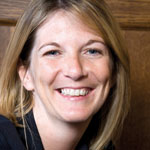
Claire Bosi is preparing to relaunch Hibiscus - the two-Michelin-starred restaurant that she and her chef husband, Claude, ran so successfully in Ludlow, Shropshire, for seven years - in the heart of Mayfair, London, in October.
"We are moving to give Hibiscus the stability it needs to grow," Bosi says. "While we were lucky to find some great staff in Ludlow, it was a real issue."
Bosi began her career studying tourism at college. "Sitting at a desk really wasn't my thing, but working in restaurants was different. The buzz of a busy place, the impact you can have on guests, the ambience between front and back of house were all things I really enjoyed and thrived on," she says.
Bosi was working for Shaun Hill at the Merchant House in Ludlow when she met Claude, who was then a chef at the nearby Overton Grange hotel. "His employer brought him to the restaurant to celebrate his promotion to head chef and the rest, as they say, is history."
However, keeping Hibiscus profitable and thriving since 2000 proved a big challenge, with foot-and-mouth, the petrol strike, and two other great restaurants within walking distance to contend with.
While she regards Michelin stars as wonderful, Bosi says it is the 300 good luck cards they received on closing in April, together with a database of 1,500 customers desperate to eat at their new venture, which is their biggest achievement. "Oh, and the birth of my daughter, Paige, who, now two, has started to throw things around the kitchen and shout a lot."
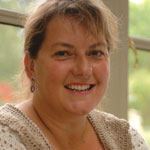
Hotels are in Tracy Blackiston's blood. As a child she used to set the breakfast tables of her parents' Blackpool hotel before going to school. It was no surprise, then, that she went on to study catering at Blackpool and Fylde College.
Blackiston's first year in the industry was spent working front of house in a hotel in Zurich, before returning to England in 1985 to work at the renowned Miller Howe hotel and restaurant in the Lake District. There she met and married Galton Blackiston and they continued to work at Miller Howe until 1990 - she as restaurant manager and he as head chef.
"We wanted our own place and after searching everywhere we returned to Galton's Norfolk roots," says Blackiston, who now has two sons, aged 12 and six. The couple opened Morston Hall in 1991, with two staff to run the 40-seat restaurant and three bedrooms, with the intention of offering good-quality, local produce.
Today the business has 13 bedrooms and employs 20 staff, with plans to expand the restaurant by a further 14 covers.
Key to Morston Hall's success, which holds a Michelin star and has won countless industry awards, is a committed and devoted team.
"Getting staff to come here initially can be difficult as we are in a very rural location with no public transport," says Blackiston, whose role today is managing and overseeing the development of the hotel and restaurant. "But once here they stay because they enjoy the friendly and caring atmosphere that we provide.
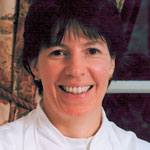
Inspired by family holidays in France, Sally Clarke was just 12 when she started cooking in a professional kitchen, working in her school holidays for an outside catering company.
She trained as a chef at Croydon Technical College and then moved to Paris, working in different kitchens before heading to California for four years, drawing inspiration from fellow chef Alice Waters of Chez Panisse.
In 1984 she opened her own restaurant, Clarke's, in Kensington, London. Twenty-three years on, Clarke is one of the industry's most respected female chefs, having built up a small empire that includes the restaurant, a deli and commercial bakery whose clients include Harvey Nichols and Carluccio's.
Apart from one estate agent who, when she was searching for sites, "patted me on the head and suggested I'd be happier running a little wine bar," Clarke says she has had nothing but support in her career.
"When I was training, I used to get locked in the fridge for a laugh, but it wasn't anything serious. Even as a young, unpaid English commis in Paris, I was treated well. Of course you hear stories, like female chefs being made to scrub drains or carry the heaviest stockpot but there's much less of that now."
When it comes to opportunities for women in kitchens today, Clarke believes the industry "has improved immeasurably"- largely because of legislation as well as changing attitudes. "But some things, like the hours and lifestyle, can't change. It's a hard-work industry."

Dawn Davies has been in the press a lot lately. Mainly it's because critics have enthused about her latest project, the Wonder Bar, which features a wine-tasting jukebox serving 25ml sips in 75ml taster glasses in London's Selfridges, but it's also because this concept actually breaks the law (wine has to sold in 125ml or 175ml measures, or multiples thereof).
It's a silly law, and Davies now intends to lobby those in charge to change it. Go, girl!
This attitude exemplifies her drive and determination. Fresh from a degree in social anthropology at Edinburgh University, she initially joined Mju and from there progressed to Zuma, gaining various wine qualifications before joining Gordon Ramsay's Boxwood Café at the Berkeley, where, in charge of her first proper list, she really came into her own.
"I went to work there because Gordon is a big name and I knew that Ronan Sayburn, his group sommelier, would be a good person to learn from," Davies says.
Back then she was the only female sommelier in the group, and only one of a handful in London. "Now every restaurant seems to have a female sommelier. I do think women have better palates and empathise better with customers," she says.
Davies moved on to the Ledbury, in Notting Hill, where the list she produced featured 500 competitively priced wines from all over the world. "I'm most proud of the list I did there," she says.
Selfridge's food and restaurants director Ewan Venters, a Ledbury regular, spotted Davies and snatched her for the Wonder Bar, where she now also oversees a wine shop featuring a personal shopping service.
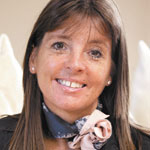
Debrah Dhugga joined Tom's Companies - comprising Seaham Hall Hotel and Serenity Spa in County Durham, the Samling in Windermere, Fisherman's Lodge restaurant in Newcastle, and the Serenity in the City spa in Newcastle in 2005.
She was previously director of sales at Malmaison, having worked her way up the career ladder with a number of major hotel companies, including Swallow, Crown and Thistle.
"I was appointed by the owner, Tom Maxfield, to oversee the recruitment and retention of quality staff that would help us manage the first five-star hotel in the North-east of England, and open the first new brand of spas in Newcastle," Dhugga says.
The Serenity in the City spa brand is set to grow, with the second opening soon in Edinburgh, followed by a further 20 throughout the UK and expansion into Europe, while Seaham Hall, which has 19 suites, is due to be extended to 48 suites and bedrooms.
As well as gaining five-star status last year, Seaham Hall was also named Luxury Spa Hotel of the Year in the worldwide Gala Spa Awards - achievements that Dhugga believes are the result of building a great team of staff. "Only by investing in people will you get rewards," she says.
To this end, Dhugga has introduced flexible working hours and shared work patterns to encourage more women into the business.
She understands only too well the difficulties of being a working mother, with children who are now 18 and 15. "It has been difficult at times, but it's all about being organised and prepared."
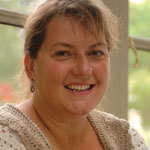
Hotels are in Tracy Blackiston's blood. As a child she used to set the breakfast tables of her parents' Blackpool hotel before going to school. It was no surprise, then, that she went on to study catering at Blackpool and Fylde College.
Blackiston's first year in the industry was spent working front of house in a hotel in Zurich, before returning to England in 1985 to work at the renowned Miller Howe hotel and restaurant in the Lake District. There she met and married Galton Blackiston and they continued to work at Miller Howe until 1990 - she as restaurant manager and he as head chef.
"We wanted our own place and after searching everywhere we returned to Galton's Norfolk roots," says Blackiston, who now has two sons, aged 12 and six. The couple opened Morston Hall in 1991, with two staff to run the 40-seat restaurant and three bedrooms, with the intention of offering good-quality, local produce.
Today the business has 13 bedrooms and employs 20 staff, with plans to expand the restaurant by a further 14 covers.
Key to Morston Hall's success, which holds a Michelin star and has won countless industry awards, is a committed and devoted team.
"Getting staff to come here initially can be difficult as we are in a very rural location with no public transport," says Blackiston, whose role today is managing and overseeing the development of the hotel and restaurant. "But once here they stay because they enjoy the friendly and caring atmosphere that we provide."
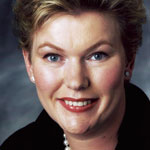
One of the few women in the sector to be awarded an MBE, Julia Hands was singled out in this year's Queen's Birthday Honours list for services to hospitality. Hands, who has a string of other awards to her name, including being named one of the top 10 entrepreneurs in the UK at the National Business Awards in 2005, has spent more than £30m extensively refurbishing the 14 country house hotels that make up the Hand Picked Hotels group.
After working as a solicitor for 12 years, Hands was desperate for a change. In 1999, with no previous experience in the sector, she and her husband, Guy, bought the hotel group for £125m.
"I just felt it was time for a change of direction," she says. "It's just an appealing industry with so many different aspects to it."
The properties, which include Rookery Hall in Cheshire, Norton House in Edinburgh and the Priest House in Derbyshire, were initially managed independently. However, Hands has now taken that role back in-house in order to improve consistency and quality and the group is going from strength to strength.
The 24/7 nature of the industry makes it hard for women, she admits - she has four children herself. "It's tricky as it's not easy to compartmentalise your life and switch off when you leave work," she says.

It has been 10 years since Alison Frith left her position as commercial director at Charlton House to set up niche contract caterer Artizian. Since then the company's healthy eating and fresh food emphasis has won over such contracts as Ernst & Young and the Oxford Science Park, with turnovers of £3m and £1m respectively.
Her motivation, Frith says, was a desire to dictate her own future. "To realise my own expectations I needed to do it for myself."
The ethos behind Artizian, she says, was simple: it was to be a fresh food company, targeting the blue-chip corporate niche. "It was about finding people who wanted to work for us and to ensure they were happy, both in work and out of work. A great deal of our training is still in ensuring people are happy in their spare time."
The company snared some lucrative names early on, including HFC bank (now part of HSBC) and Alfred Dunhill, ensuring they hit their budget in their first year.
What characteristics got Frith and the company through those first few years? "Belief, determination, energy and enthusiasm," she says.
Was it harder, for a woman, setting up the company in a predominantly male sector? "Our sector is competitive whether you are male or female," she says. "Some people prefer dealing with men, others with women. People can think it's harder as a woman but it's not necessarily true."
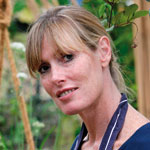
Skye Gyngell stands out as a chef who follows her own ideals. She describes her cooking as "non-technical", and she is renowned for working with quality, seasonal produce and creating dishes from food grown in the nurseries' kitchen garden.
"Today everyone is talking about provenance, but for them it's a sales point," she says. "We were doing it four years ago because we believed in it and that makes me proud."
Aussie-born Gyngell trained under Anne Willan at La Varenne and at Dodin-Bouffant in Paris, and then moved to London to work at the French House and the Dorchester. She has also cooked for several high-profile private clients - such as Madonna and Mario Testino. In 2004, Gyngell persuaded friends Gael and Francesco Boglione, who owned Petersham Nurseries, to let her set up the café and create "the antithesis of a West End restaurant".
It began with lunches for 10 diners a few times a week, but she and her predominantly female brigade of 10 now cook lunch five days a week for up to 110 people a service.
Gyngell says she initially struggled to be taken seriously, with suppliers frequently trying to palm her off with inferior produce.
"I was shy and thought a woman shouldn't be tough, but I have had to learn to change," Gyngell says. "I tend to work with women chefs because they are better team players."
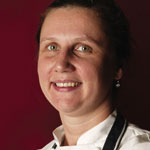
Coming from an Italian family where food was a big part of life, Angela Hartnett knew from an early age that she wanted to run a restaurant. "I didn't always know I wanted to be a chef," she says. "But I knew I wanted to be around food."
After completing a history degree at Cambridge Polytechnic, Hartnett did spells in small family-run restaurant kitchens. It wasn't until she joined Cambridge's Midsummer House under Hans Schweitzer that she actually put on chef's whites. "Before then I just used to go to work in shorts and a T-shirt," she says.
Hartnett subsequently landed a job working under Gordon Ramsay at Aubergine in 1993. The relationship grew over the years and Hartnett helped set-up Verre by Gordon Ramsay at the Hilton Dubai Creek, before heading up her eponymous restaurant for Gordon Ramsay Holdings at the Connaught in 2002. She won a Michelin star in 2004 and was made an MBE this year.
The key to synergy between men and women is for each to play to their strengths, she says. "Women aren't as physically strong as men, so it's stupid to get them to do lots of heavy lifting or work that men can do better. We have other valuable skills. I'm the first to admit that long hours tire me and while women can be very tough, it can be pointless trying to keep up with male machismo."
So will the next 10 years see more women in top-end restaurant kitchens? "The numbers are definitely improving. When I started at Aubergine there were 10 men and me. Now there's a woman for every five men at the Connaught's kitchen."
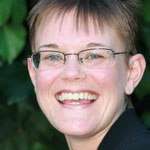
Nine years ago, Leigh Jenkins was a trainee receptionist with Hilton. Today, aged 27, she is the youngest general manager in Von Essen's hotel group, at the New Park Manor hotel and spa.
In her first year, she increased the hotel's turnover by 100% and has since scooped a Favourite Spa award at the British Travel Awards.
This year Jenkins won Young Achiever of the Year at the Shine Awards, which recognise female high-flyers in the hospitality, travel and tourism sectors. Putting her success down to "amazing support and a good team", Jenkins believes the industry offers real scope for women who want to build careers in hotel management.
"The industry has changed a lot over the past five years and there are more women coming up through the ranks."
However, being a young and female general manager does bring its own challenges. "Guests always look surprised to see me," she laughs. "With my name, maybe they're expecting a man. I think I've probably had to prove myself more along the way. But if you know your stuff, you earn respect."
Looking ahead, Jenkins sees her future "possibly in London, maybe as a regional general manager." Does she have any tips for success? "Work with people you trust and don't tread on anyone's toes as you move up. You never know when you might need them."
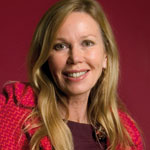
Kit Kemp has proved that luxury hotels don't have to be fusty and dull.
Having worked for an firm of architects that specialised in hotel projects, Kemp launched Firmdale with her husband, Tim, in 1985. At the time, London's five-star hotels were pretty much confined to Mayfair, but the Kemps' vision of turning around derelict buildings, former NCP car parks, dental warehouses and hospitals has helped to spread them around London - the Soho Hotel, the Charlotte Street Hotel, the Covent Garden Hotel, and the Knightsbridge Hotel.
When Kemp designed her first hotel, Dorset Square, in Marylebone, the only other boutique property in London was Anoushka Hempel's Blakes hotel. Their lead was subsequently followed by the likes of Gordon Campbell Gray's One Aldwych and Christina Ong's Halkin and Metropolitan hotels.
The company now has seven hotels in London and makes about £5-6m a year profit. Kemp's latest hotel, the Haymarket, has a chic, urban feel with an eclectic mix of modern and antique styles, bespoke furnishings and original art.
Kemp thinks one of her major achievements is helping to change the attitude of the industry towards small hotels. On being a woman in the industry, she adds: "I've experienced only positive things. The hotel industry is a fabulous place for every women to work."

Ask any female sommelier who they admire most in the industry and they'll say Joëlle Marti-Baron. She has trained some of the country's finest sommeliers (both male and female) and rather than being miffed when they move on, she's always extremely proud.
But then she has had a couple of fine mentors herself - first Eric Beaumard, now at the Four Seasons Georges V hotel in Paris, then Gerard Basset, Hotel du Vin's co-creator.
For the past seven years she has ruled over the four restaurants and an 800-bin list at the now Hyatt-owned Great Eastern Hotel. Currently on maternity leave, she'll be back to the grindstone in October.
It was during catering school, where she majored in cooking, that she first got the wine bug. "I did like being in the kitchen, but it seemed to me much more fun talking to people about wine," she remembers.
With so much to choose from, does she have a favourite? "It has to be Champagne," she says, although South African wines get her nod for becoming the next big thing.
Just don't get her started on mark-ups. "I hate having to keep justifying them. People don't work out what it all costs - the staff, the rent and all the rest of it. If you want a professional team that knows what they are doing then you have to pay for it."
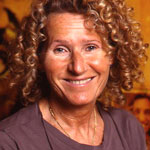
Instrumental in founding not just one, but two successful high-street restaurant chains, Juliette Joffe says catering is in her blood. "It's my life and I truly believe it has to be your life if you want to be successful."
She met her husband and business partner, Russel, at school when they were 13 and they've worked together ever since.
In 1984, Juliette started working evenings at their first joint venture, Le Bistroquet, until she finally quit her "day job" to concentrate full time on the business. From there, they developed Café Flo, a chain of very successful brasseries, before selling up in 1994.
Back with a new concept, they started Giraffe in 1998, but she hasn't become complacent: "I don't take success for granted. It takes a lot of hard work, dedication and inspiration. If your staff see you leading from the top, they will follow."
The drawback of the industry, she admits, though, is the long and difficult hours: "We are making steps forward but it is tough for women. It's not like an office - you can't just walk out of a shift at 4pm."
Safety is another issue: "Unfortunately, women locking up at night are more open to abuse than men. Customers are more likely to be abusive to a female manager than a man," she adds.
And that is a shame, she says, considering women are better multi-taskers than men. "Women will always be good at this business because they can focus on everything and do 100 things at once. It just comes more naturally to them."
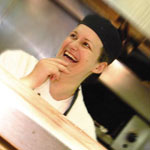
Stephanie Moon's career has taken her to Park Lane in London, Switzerland, Munich, Sydney and the Great Barrier Reef. She had planned to live in Australia permanently, but "got so homesick" she moved back to the UK in 1996. After stints at Congham Hall hotel in Norfolk and Consiton Hall hotel in North Yorkshire, she landed the role of executive chef at Rudding Park hotel in North Yorkshire in 2001.
Moon encourages the use of local produce: "I'm a farmer's daughter, so I'm very biased towards using local foods. People love the Yorkshire stuff we serve."
Being female hasn't ever been an issue for her: "I have always found that whenever I go you get the job based on who you have worked for and your experience."
She finds it interesting that people perceive a chef's role in a certain way. "When I walk through the restaurant people want to talk to me and ask how we do things - they say ‘Ooo, there's the chef'. It's seen as a very glamorous job but behind the scenes it's anything but. Well, there are some very glamorous parts of it, I guess."
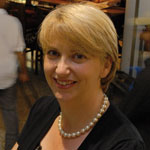
BAA AirportsResponsible for all food and beverage outlets at BAA's seven UK airports, Catherine Peachey began her career at Sutcliffe Catering after doing a catering degree at Oxford Polytechnic.
Since she joined BAA in 1988 as the public catering standards officer, the most interesting change, she says, has been the development of new outlets. "Seeing the range of brands and choice now around and having been involved in that transition has been really rewarding."
Initially her role involved checking contracts, but as she progressed she helped bring the high-street brands into the airports. More recently she has been in charge of the food and beverage at Heathrow's soon-to-be-opened T5, which will include a Carluccio's and Gordon Ramsay offering.
But now, having a 14-month-old baby, Peachey admits her greatest challenge is to find a balance in her life. "I've had 19 good years at BAA which I've enjoyed immensely and achieved a lot. The job was previously my ‘baby', but now I have to achieve a balance between my home life and my career."
Returning to work, she has found she looks more carefully at the family-friendly offerings. "I've become more aware of how important things like family menus and pushchair access are," she says.
More generally, though, she has found that, "Regardless of gender, if you do a good job and deliver then you get on. It's good to have a balanced team as men and women have different perspectives. Women can be more practical and decisive - or maybe that's just me."
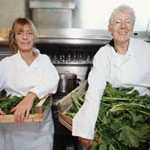
The River Café astonished the London restaurant cognoscenti when it opened in 1987 - here was an Italian restaurant run by women, where clean, clear-cut Italian food derived from very fine ingredients was prepared simply in an open-plan kitchen.
The whole approach was feminine and maternal: "We were convinced that we could extend the way we lived and cooked at home into the restaurant, and create a style that was natural and true to our own tastes", they say, and the restaurant was deliberately conceived along domestic lines. What they achieved was no less than the revolution of the idea of Italian food in this country.
The River Café was an instant success, attracting the gastronomically curious as well as the rich and famous, but remarkably, 20 years after it first opened its doors, it has lost none of its fame and glory and now has a Michelin star.
Part of their success is down to their management attitude. Everyone who works there "from the chefs to the waiters and kitchen porters is involved in the preparation of the food," they claim. This nurturing of young talent has given us some of the best known free-form chefs of the present day: Jamie Oliver, Hugh Fearnley-Whittingstall, Sam and Sam Clarke and Theo Randall all owe their talents to some extent to these two inspirational ladies.
Rogers and Gray have also written 10 enormously popular and practical cookery books.
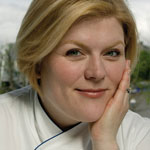
Since jetting across to London from her homeland of Finland back in the early 1990s, Helena Puolakka has made her mark on the London restaurant scene.
She learnt her trade in the kitchens of some of the industry's masterchefs - notably, those of Gordon Ramsay (in his Aubergine days), Pierre Koffmann and France's culinary genius Pierre Gagnaire.
Koffmann, in particular, helped propel her into the top league. She did two stints with him at his London restaurant La Tante Claire, the second, in the late 1990s, as his head chef - a tremendous testament to her culinary skills, given the iconic status of his restaurant and the macho world of chefs.
In May of this year, she opened Skylon for D&D London, bringing trademark Scandinavian touches (such as hot-smoked fish) to the modern classical repertoire of dishes she has refined over the years. Clean, fresh, seasonal flavours and clever ingredient matches mark her style.
The launch of Skylon took place just after the birth of Puolakka's first child, but thanks to "a fantastic husband and very good nanny", she has been able to focus on establishing the restaurant as a destination venue in London's competitive market. She doesn't want to be known as a top female chef - just as a top chef. "I want people to want to come and work for me here," she says.
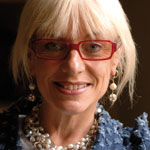
Vanessa Scott is the founder of Strattons, one of the UK's leading environmentally friendly hotels. The property has won a hatful of awards - including five separate accolades in 2006 alone.
Having run only a sandwich business before setting up Strattons, Scott was unwittingly ahead of her time when she insisted the hotel be run with a keen eye on its environmental impact from day one. "The town was suffering social and economic deprivation and we wanted to give something back to the community and help it get on its feet again," she explains.
Gaining credibility initially was difficult, she says: "First you're a woman and second you're talking about the environment - it seemed green and fluffy and people patronised you and dismissed it as quirky.
Much of the problem, she admits, is that people thought being environmentally friendly meant sacrificing quality. "Now these misconceptions are being dispelled," she says. "It's common sense that the best food is local and organic but it also makes good business sense."
She adds: "Women's common sense and intuition should be valued more in the workplace - the industry would be the stronger for it and not just governed by the bottom line."
"It may sound sexist, but in my experience, women give businesses a more sustainable footing and are generally better at customer service."
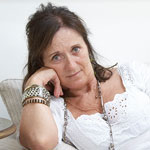
While Rick Stein has been the public face of the successful Seafood Restaurant and coterie of businesses - encompassing four restaurants, 33 bedrooms in four locations, a delicatessen, a pâtisserie and a cookery school - in Padstow, Cornwall, his former wife, Jill, has played an equally significant role in developing the company over the past 33 years.
In fact, with Rick's extensive travelling for TV commitments, and because he spends part of the year at his house in Sydney, it is Jill who is the mainstay of the Stein empire.
Neither Jill nor Rick had any industry experience before they set up the Seafood Restaurant in 1974 and developed the business, alongside raising a family of three sons. "We just learnt as we went on," she says.
"Rick was based in the kitchen and I was front of house. As we expanded and developed I concentrated on the bedrooms' interior design and I'm still involved with this now. After 25 years I stopped working in the restaurants and took on more of a managerial role, overseeing new projects and interior design.
"St Edmunds House (a six-bedroom B&B) was my first big design project and is the one that I'm still most fond of."
Not one to rest on her laurels, Jill says it is vital to stay ahead of the game. "Because we have been in the business for more than 30 years, it's important to keep the business moving forward into the 21st century by keeping fresh and bringing in new ideas - competition is stepping up in Cornwall and the West Country."
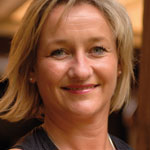
Emma Tagg exemplifies what can be achieved through hard work and determination. After completing a one-year catering course at Norfolk College, she worked briefly at Congham Hall country house hotel in Grimston and the 14-bedroom Lifeboat Inn in Thornham in Norfolk. Within two years - aged just 19 - she was running the entire business.
Tagg's meteoric rise continued when, in 1991, she was spotted by Paul Whittome, owner of the Hoste Arms, who offered her a housekeeping job. Within three years she was promoted to head housekeeper, then assistant manager in 1997, general manager in 1999, executive manager in 2002 and managing director in 2006.
Tagg believes in a hands-on approach with both staff and customers and still does all the practical jobs she did while climbing the career ladder. "I don't have an office, just a secretary who chases me around the hotel," she says.
"One of the most important parts of my job is greeting and welcoming customers. Supporting staff is important, too. As a single mother of a 12-year-old daughter, I know it can be very tough being a working mum. It is so important that you do everything you can to keep competent staff by working around their family arrangements - isn't that what everyone does?"
Tagg's main achievement, she says, is the growth of the business from just eight staff originally. "Now I'm running the business, which has grown to 35 bedrooms here, seven in the Railway Inn, two holiday cottages and eating facilities for 240 people in four different restaurants, with 76 staff."
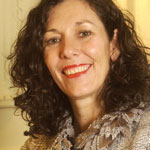
Debbie Taylor isn't concerned with qualifications, but if she was, she would have plenty to talk about, boasting a distinction for her hospitality management MSc, along with management courses from Lausanne School of Hospitality in Switzerland and Cornell University. She's also one of only two Scottish women to have been presented with membership of the prestigious Master Innholders association.
After her children, Taylor says her greatest achievements are: "Becoming the first female general manager of Edinburgh's Balmoral Hotel in its 101-year history and receiving the Manager of the Year award at this year's Cateys."
Despite her 20 years of experience in the sector, which includes a stint as general manager at Sir Rocco Forte's St David's Hotel and Spa in Cardiff, Taylor is still a hands-on manager who isn't afraid to work behind reception or clean up the bars when needed.
She looks forward to the day when hospitality is considered a more desirable career path. "I would like to see more commitment to education, training and development within the industry to encourage and attract staff and present the industry as a credible career option."
Taylor believes the industry presents equal opportunities for men and women. "I don't feel that I have had any less opportunity or any more of a challenge than a man. Any career can become more of a life than a job. The hospitality sector involves working very long hours, often at times when others are at home with their families, so it needs a great deal of personal commitment."
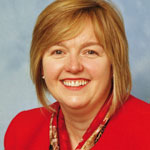
Sara Edwards started her HR career purely by chance, originally training in hotel management with Swallow Hotels before realising, after a placement as personnel manager, that "HR was my real niche".
In 1999, she joined Claridge's as HR director, where she cut staff turnover by an impressive 50%, before being promoted to HR director for the Savoy Group in 2003. Two years later, the Maybourne Group appointed her vice-president of human resources, and Edwards has since been listed in the UK's Top 100 Most Influential HR Executives.
On the changing role of HR, she says: "It used to be mostly an admin function but it's now a strategic part of a business which influences every department. More companies now realise they have to put people at the heart of their business to be successful," she says.
While Edwards believes the sector offers more opportunities for women than it used to - "you see more female general managers now than ever before" - she says companies need to offer flexible working options to appeal to female recruits.
"Employers who want to attract and retain good people need to look at that across the board. It's not just a female thing, though. Guys now want to take time off for families, too. It's just how the modern workforce is," she explains.
When it comes to climbing the ladder, she stresses that it's working hard, regardless of whether you're male or female, that matters. "This industry is a vocation. To get ahead, you've got to be passionate about what you do."
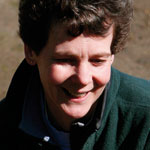
Helen Everitt-Matthias has played a significant role, working alongside husband David, in creating one of the UK's most outstanding restaurants - Le Champignon Sauvage. The couple, who married in 1985, opened their business 20 years ago this month. The restaurant has gone on to win many awards and, most significantly, two Michelin stars.
Originally from Yorkshire, Everitt-Matthias studied hotel administration and accounts at Guildford Technical College before entering the industry as a hotel receptionist. In 1982, while working on reception at the Inn on the Park hotel, in London, she met her future husband, who was working in the kitchens.
Although she left the industry briefly to work as a secretary at IBM, she began to do the occasional shift as a waitress in preparation for the couple's plan to open their own restaurant together.
Now firmly in charge of a welcoming and efficient front of house team, Everitt-Matthias ensures that David's exacting and exciting food is matched by peerless restaurant service. "It's no good having fantastic food if miserable service is going to hamper the customer's enjoyment," she says.
"My main contribution to the business has been to take all the pressure off David so that he can concentrate totally on cooking, as well as making sure that the communication between the kitchen and restaurant is working."
Expansion of the restaurant two years ago from 28 to 40 covers has satisfied the couple's plans for growth. "We're now here until our retirement," Everitt-Matthias says.

Although a trained chef, Karen Farthing has made her mark front of house at 36 on the Quay, the Michelin-starred restaurant that she opened with her husband, Ramon, in 1996. The couple had met 10 years earlier when they worked together in the kitchens of the Castle Hotel in Taunton, Somerset.
"Ray trained me - he was the sous chef and I was a commis, although it wasn't until three years later that we actually got together," she says. "We married in 1990."
Farthing left the kitchen 17 years ago when her son was born. "It's very difficult for women to maintain a career as a chef once they have children," she says. "However, once we opened 36, by which time we also had a daughter, I could combine running the restaurant with looking after the children as we lived upstairs. At times it was very difficult being pulled between the family and the business."
Farthing says her major achievement at 36 has been persuading Ramon to agree to add four bedrooms to the restaurant and buy a small cottage to let to guests. "I think Ray was unsure that they would work, but I knew the demand was there from talking to the customers. I oversaw the whole project. They now add about £85,000 to our annual turnover, with occupancy at about 90%."
With the perfect location - overlooking Chichester harbour, a Michelin star, and now the accommodation, Farthing says there are no plans to move away from Emsworth. "But maybe we could add a couple more rooms or buy another cottage…?"
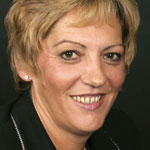
Linda Halliday nearly went into hotel management before switching to business studies and taking the HR route instead. After completing a personnel training placement with Granada Motorway Services, she spent five years with Compass as recruitment manager. Then, in 1985, she joined her husband as human resources director to build up their contract catering firm, Halliday Catering Services.
Ten years later, after the sudden death of her husband, many expected Halliday to sell up but she continued to run the business. When it merged with Wilson Storey in 2000, the company had grown to 850 employees with a turnover of £23m.
In 2003, in recognition of her commitment to training and the industry, she was awarded the Catey for Food Service Caterer. As HR and training director of BaxterStorey, the UK's fifth-largest independent contract caterer, she's also the only woman on the board.
As someone who has climbed to the top in a male-dominated sector, what challenges does she think other women face? "There are fewer women the further up you get, but I don't think the hospitality industry discriminates at all," she says. "The industry has opened its eyes to women's needs in the past decade, especially in areas such as training and flexible working."
While she feels the industry now offers more opportunities to women, Halliday identifies a different problem for employers. "There's a huge skills shortage. As a large employer, we have a part to play in that through training. It's about creating a culture where everyone can thrive and succeed."
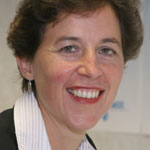
n a relatively short space of time, Sue Hawkins has made a very real difference to the sector that is often regarded as the Cinderella of the industry.
Through her chairmanship of the National Association of Care Catering (NACC), the membership has increased by 25% to more than 500. The profile of care catering has also been raised significantly, with the NACC now being regularly consulted by Government when reviewing policies on nutrition in care homes and the community.
Armed with a first-class degree in hotel and catering from Oxford Polytechnic, Hawkins began her career with Sutcliffe Catering before moving into school catering at Somerset County Council. When she later moved into a position at Dorset County Council, advising social services on all their catering requirements, she realised that this was an area where she could make a difference.
"Care catering has a very broad scope, covering all ages, which makes every day interesting and a challenge," Hawkins says. She would like to bring more people into the sector and through her work with the NACC has encouraged the provision of a proper career path and mandatory nutrition training.
Hawkins will be stepping down as chairman of the NACC next month to take on a new role with Dorset County Council.
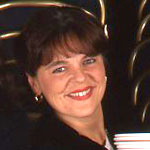
After a degree in hotel and catering administration, Zoe Jenkins has been in and out of London hotels, including three separate stints at the Dorchester, culminating in her promotion to food and beverage manager in 1997.
When Jenkins first worked at the hotel 20 years ago, it was very much a male-dominated profession. "Hospitality back then could be quite a chauvinistic place. I was the first girl to work in food and beverage when I worked in the bar here and there were almost no women front of house."
However, over the years she has witnessed people's views change considerably and women are now just as likely as men to come through the ranks. "It's about passion, vision, drive - and if you've got that it doesn't matter if you're male or female," she says
Jenkins would, however, still like to see women reach the highest echelons of hospitality, and see as many female general managers as male. One of the things preventing this, she says, is the importance of family. "Anyone who wants a family might find that hotel life isn't conducive. If you want to see your kids, look after them when they're ill or spend time with them when they're on holiday, then the senior, time-consuming positions can be restrictive."
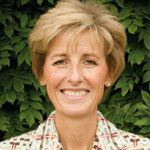
The co-founder and chief executive of contract caterer Charlton House, Robyn Jones always knew she wanted to work in hospitality, starting out as a graduate trainee for GrandMet Catering before progressing to work for the likes of Gardner Merchant, High Table (now Avenance) and Compass.
After being made redundant in 1991, she set up Charlton House Catering Services, working from home with the help of a £2,500 redundancy package. Tim, her husband, now chairman, came on board seven years later.
The company has since become one of the UK's largest independent contract catering operators, with 1,700 staff and a turnover of £68m. Jones has become a well-known figure, raising funds for charitable causes and winning numerous awards, including the Food Service Caterer Award at the 2006 Cateys.
As an employer and mother of two, she's aware of the challenges many women face at work, particularly after having children.
"It can be very tough, juggling long hours and trying to bring up a family but lots of women do it very successfully," she says. "Of course, from a business point of view, if women aren't encouraged to return to work, you lose skills, which is a big worry."
At Charlton House, the equal opportunity policies are clearly working. Three of the board, including Jones, are female, the longest-serving employee is a woman and Jones explains that all staff are firmly encouraged to have a life outside work. Training is another key focus.
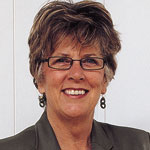
At a time of life when most people are slowing down, Prue Leith, 67, has just accepted one of her most challenging jobs as chairman of the School Food Trust.
In an attempt to encourage children to eat more healthily, she must contend with the enormous social issues arising from the decline in eating standards at home, combined with the increasingly autonomous lives that many youngsters now lead.
"The job is so big that I feel I'm trying to hold back the tide," she says. "I don't know if we can do it, but I'm certainly prepared to try."
If any one can do it, Leith can. For more than 30 years she enjoyed considerable success running a trio of businesses - Leith's Restaurant, Leiths School of Food and Wine and catering company Leith's - as well as establishing a major public profile through her cookery books, newspaper columns and television appearances.
Since selling her businesses in 1995, she has remained at the forefront of the industry, picking up countless awards.
Her work helping others gives her the greatest fulfilment. "One of the major highlights has been the work I did as chairman of the RSA (Royal Society for the encouragement of Arts, Manufactures and Commerce) Focus on Food campaign (founded to promote and strengthen the status of practical food education in primary and secondary schools through cooking buses).
"I'm also very proud of the Hoxton Apprentice (the training restaurant, run by Training for Life, which provides skills and training for the homeless and long-term unemployed). It has demonstrated that the best way to train people is to do it on the job."

Dubbed the neighbourhood restaurant queen, Rebecca Mascarenhas owns four restaurants 11 Abingdon Road in Kensington, Sonny's in Barnes, the Phoenix in Putney and Sonny's in Nottingham - and they're all buzzing.
But choosing a great neighbourhood location is Mascarenhas's strength, along with her other business mantras of maintaining focus, reinvesting - "none of my restaurants look tired" - and building a good team.
Not that she ever planned to have more than one restaurant. "It has been an organic growth," she says. When she opened Sonny's, her first daughter (now 17 - and she has two more), was often left behind the bar in a basket while she ran the business.
"It's a very difficult business to be in if you have kids and that's generally why we lose staff. I've seen very talented women have to take lesser jobs because of it," Mascarenhas says. "But I'm not sure what we can do as an industry - childcare covers only office hours."
Like many in the industry, she fell into catering, working first with legendary restaurateur Bob Peyton (Chicago Pizza Pie Factory et al), then Victor Lownes (Playboy Club, Stock's) before leaving to do her own thing - that was 20 years ago.
What changes would she like to see? "There's still a slightly misogynous feel in the industry. It's not a conscious thing, it's just endemic. I see my girls having to work that bit harder."
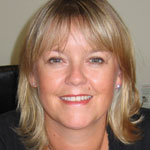
Many people within hospitality have cause to be grateful to Penny Moore and her team at industry charity Hospitality Action, which helps people from the sector who have fallen on hard times. In addition to its core work, under her leadership the charity has put itself on a sound financial footing, and reached out to educate and help many within the industry through its subsidiary body the Ark Foundation (which deals specifically with drug- and alcohol-related problems).
Moore joined the charity in 2004 - after 16 years working in both the retail and industry sides of the food business - at Sainsbury's, Forte and Booker Food Service. While she was at Booker it was sold and rebranded as 3663: she transferred to the new company, becoming instrumental in establishing its buying department as one of the most professional of its kind in the industry.
By and large she has worked for companies that have been proactive in encouraging equal opportunities for women. However, 13 years ago, returning to work after having had her son, flexible working wasn't a given and she had to pay for childcare at a time when she could least afford it.
The issue of women struggling to maintain a work-life balance because of long h








